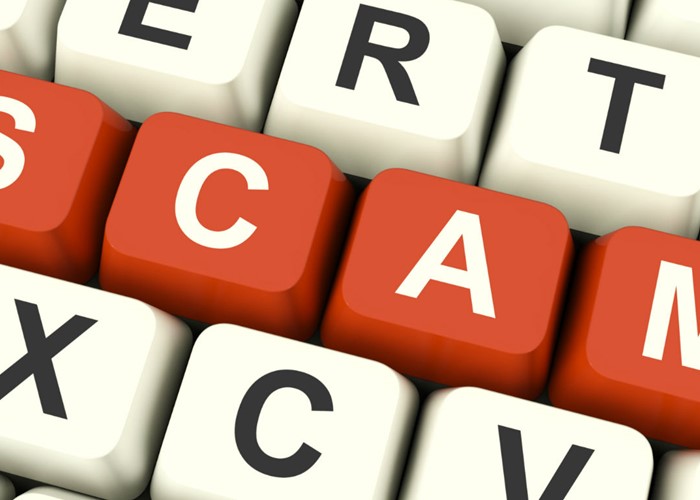The silliest scam around

These scam emails and letters seem daft. But people still fall for them.
This past weekend was the August Bank Holiday weekend, which in media terms means that it's the fag end of the silly season. As everyone knows, nothing much happens during August – our rulers are recharging their political batteries, financiers take a holiday from the screens, while everyone with children appears to have disappeared.
But you still expect your daily news fix.
Therefore, in full silly season spirit, I present what has got to be the daftest (but perhaps the most expensive for victims) of all scams – the so-called Nigerian 419 letter. This is the one that invites you to share in some secret fortune and is named after the part of the Nigerian criminal code which outlaws the practice of sending these letters – not that it seems to stop them as the detection rate is so close to zero it fails to deter.
And in any case most of these mad emails emanate from outside Africa's most populous country.
The grim truth is that if you believe even a single word of one of these missives, you could easily lose a six figure sum £200,000 and more. And that is not silly.
A scam making use of your surname
The one I was sent by a sharp-eyed Lovemoney reader is the surname-based variety. The scamsters send out millions of emails using a mail-merge program, so that each one has the surname of the recipient. Or they invest more cash and send a real letter through the post – we are less used to questioning these than emails that make it past our spam filters.
The email would tell me that a Tom, Dick or Harry Levene had recently died in mysterious circumstances in some far off exotic country where the sender pretends to work for a well-known bank. Poor Fred, it reads, had a huge sum of money – say $23.4 million – in an account at the bank. And Fred left no Will or other instructions for his money.
So, guess what, I am the only living relative and therefore the only person who can claim the cash. But, of course, the sender wants a reward for pointing this out to me. So I have to agree to share the money 50/50, or even 70/30 in my favour.
Now half or 70% of $23.4 million is better than nothing at all, so the sender hopes that I agree to the division demand. If I don't, then I get zilch because only the 'bank worker' knows the secret code to access the fortune. The threat is that the bank or the state or someone else will grab the money if I don't act quickly.
It's complete nonsense. There is no Fred Levene, let alone one dying in mysterious circumstances, there is no fortune and there is no bank worker. But as variations on this fraud have been around for centuries – it started with pretend prisoners executed in seventeenth century Spanish jails and more recently appeals from widows of dead dictators - clearly someone, somewhere will fall for it.
They don't want your credit card details
The criminal gangs behind these scams – and they are often well organised – are not after your bank or credit card details. They find those out in other ways such as phishing (another racket which still goes on!). For who wants the contents of a bank account when they can have someone's entire wealth, including their home?
Anyone insane enough to respond will start to get demands for money to cover "legal expenses”. This is all super secret, so I must swear that I shall mention it to no one at all. These start off at £10,000 for the legal documents to ensure confidentiality. If victims fall for that, it will be £20,000 or £30,000 for “accountancy costs”.
And on it will go until either the victim has run out of cash – in extreme cases the fraudsters will arrange for their home to be remortgaged for what is a mere £100,000 or so compared with many millions available – or until the victim realises they have been conned.
How many fall for this each year? There are no reliable statistics because many victims never tell anyone about this. They are too ashamed of their foolishness. The police, in most cases, can do nothing as the fraud happens overseas.
So if anyone you know gets one of these letters, tell them it is a joke – a silly season prank rather like being invited to sit on a cushion that makes rude noises. But falling for this won't just leave you with a red face – there will be deepest red all over your finances too.
More on scams:
When is a cold call not a cold call?
The only way to put an end to these cold call scams
'Winning' this award will leave you a loser
The oil scammer drilling for my money
Unmined gold: the aggressive scammers who won't take no for an answer
The tax-free coloured diamond investment scam
This fairytale is nothing but a scam
The get rich quick scam in your inbox
Comments
Be the first to comment
Do you want to comment on this article? You need to be signed in for this feature